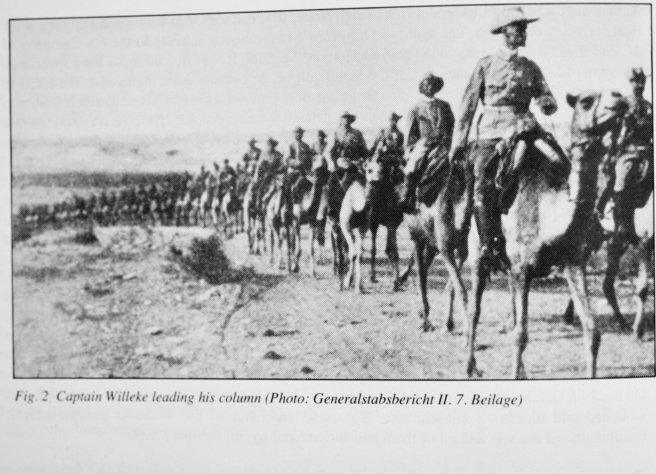I am very excited to tell the world about the latest developments in the realm of the “Kaiserbird”.
First a little background. “The Scourge of the Kaiserbird” is the English title of the historical novel “Die Keiservoël Oor Namaland” originally published in 2016. The English version saw the light last year. It is available from Amazon on Kindle as well as in print.
The story is set against the background of the German period in Namibia, 1883-1915 and features two storylines, that of Ernst Luchtenstein and that of the Nama War.
I became an obsessed student of the Nama War and that is what I want to tell my readers about in today’s blog post.
One can reason that the Nama War ended on 16 March 1908. That is the date generally accepted because that was the day that the last great battle took place. Historically one can take a different view but that is a story for another day. For today let us assume that the war ended on 16 March 1908. Why? What happened on that day? In a strange way that has become the story of my life, or so it feels these days.
In six weeks I will lead an expedition to locate the site of the great Battle of Seatsub or the Lost Battlefield of the Kalahari which took place on that fateful day. I romanticised the battle in “The Scourge of the Kaiserbird”. It is a marvellous but tragic story which I have personally told to so many people.
The Nama war was all but over in 1907 but they forgot to tell Simon Koper, also spelled Kooper or Cooper or Kopper or Copper. Simon was the leader of the Fransman and Velchoendrager tribe of Namas. Their home ground was in the far east of the country in the areas of Gochas and today’s Aranos, then known as Arahoab. They would often raid local settlements and then retreat into the desert. They were unique in one particular sense. They could live independently of water by consuming tsammas, Citrullus lanatus, a kind of desert melon. Because of that the German soldiers could not lie in ambush at water holes like they often did with the other Nama tribes.
Eventually a German officer Captain Friedrich Von Erckert launched a massive cross border operation mounted on 710 camels to locate and kill or capture Simon and his people. It is a long story but it ended on that particular date. Ironically Simon Koper escaped but Von Erckert and 12 of his men were killed, along with 55 Namas. Koper then stayed in Lokgwabe, Bechuanaland (Botswana) until his death on 31 January 1913.
The thing is that the site of the battle and the graves of the 13 German soldiers is unknown today. I have been on three expeditions to find it. A German group under Carsten Mohle has tried five times and in the nineties of the previous century Wulf Haacke also tried five times. This time I have joined forces with Carsten and the Botswana Nama Development Trust. We think we are very close to finding the site.
It is not easy to conduct these missions. There are lot of hoops to jump through, not the least being the embargo that the Botswana government has placed on research in national parks. There are no water or fuel in the area. We have to be totally self sufficient. Nevertheless we are going to try.
We are in the fortunate position of being sponsored by Mitsubishi with a vehicle. In the following weeks I will be telling readers more about this fascinating project.
The Scourge of the Kaiserbird,” originally published in Afrikaans as “Die Keiservoël Oor Namaland,” is available from all leading bookstores in Namibia, through Namibian Book Market, and in South Africa from Upper Case, formerly Graffiti, in Menlyn Maine. Copies can also be ordered from kosiemarais@gmail.com It is available on Kindle and worldwide in paperback from Amazon. Visit my Amazon author’s site by clicking on https://www.amazon.com/-/e/B07HFTTQ2B where you can also place orders.

Sending you best wishes for the successful outcome of you expedition. Ernst Luchtenstein was my great uncle (brother of my grandfather, Hugo Luchtenstein ) The Scourge of the Kaiserbird is a truly magnificent book. Yours sincerely, Keren Ludlow (Luchtenstein), daughter of John Ludlow(Hans Gunther Luchtenstein, younger son of Hugo and Hedwig)
Sent from my iPhone
>
LikeLike